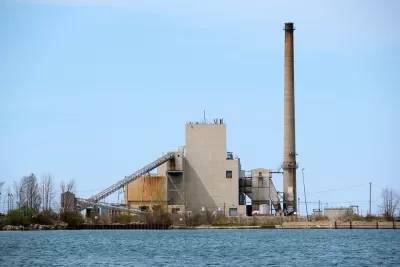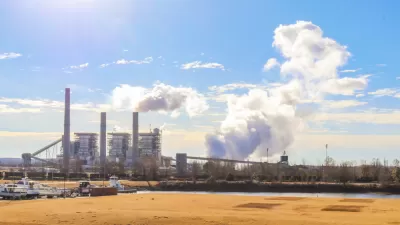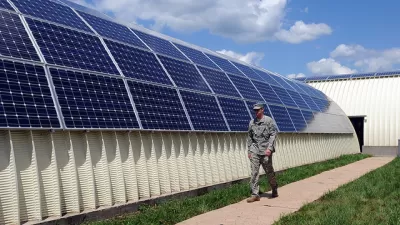Apparently Michigan's largest electricity supplier did not receive the Trump memo that the Clean Power Plan will be rolled back as they are proceeding on a plan that will achieve even higher carbon emission reductions.

The Trump administration has shown its willingness and ability to roll back what they consider to be burdensome regulations, such as its executive order to initiate the rollback of the Clean Power Plan rule, but changing market conditions is beyond their scope, and that's what DTE Energy, as well as all other investor-owned utilities, must confront in their long-term planning.
On May 16, DTE announced plans "for a dramatic transformation of its power generation — an 80% reduction in carbon emissions and the shuttering of all of its coal-fired power plants by 2050," writes Keith Matheny, environmental reporter reporter for the Detroit Free Press.
The $15-billion proposal would leave customers of the nation's seventh-largest energy utility receiving 40% of their power from new, natural gas-fired power plants; 40% from renewable energy, made possible by a dramatic increase in primarily wind power; and 20% from nuclear...
The Clean Power Plan rule, which no longer has a full description on the U.S. Environmental Protection Agency website even though it still exists, though not enforced due to a court ruling, calls for the power sector to cut emissions 32 percent below 2005 levels by 2030. DTE's plan will cut carbon emission 45 percent by 2030.
Trump and his Environmental Protection Agency administrator, Scott Pruitt, may be climate change deniers, but that view is not prevalent in the energy industry.
"Climate change is a big deal — I think it's the defining policy issue of our era; certainly for the energy industry, it is the defining policy issue," DTE Chairman and CEO Gerry Anderson said. "Both I personally and the senior leadership of this company believe we have a responsibility and believe the country has a responsibility, to address this."
Market conditions don't favor coal
The utility is also motivated by stark reality: Seven major aging coal-fired power plants that would soon require expensive upgrades. DTE last year announced the shutdown of 11 coal units by the early 2020s.
"The economics argue for retirement," Anderson said. "They are old, and as major investments come up, it simply does not make sense to continue replacing components in these plants when we see their lives as being short."
In 2015, the utility announced the shuttering of 25 coal power plants. While that decision predated the Clean Power Plan, the rule did figure into the utility's long-range planning.
More evidence of markets favoring renewables
On May 15, the state's largest utility, Consumers Energy, "announced a tariff it filed with state regulators that allows large commercial customers to purchase generation specifically from new renewable energy projects," reports Midwest Energy News. "Consumers said the three-year, voluntary pilot program is in direct response to growing demand from corporations for renewable energy."
FULL STORY: DTE plans for no coal plants, 80% cut in carbon by 2050

Planetizen Federal Action Tracker
A weekly monitor of how Trump’s orders and actions are impacting planners and planning in America.

Map: Where Senate Republicans Want to Sell Your Public Lands
For public land advocates, the Senate Republicans’ proposal to sell millions of acres of public land in the West is “the biggest fight of their careers.”

Restaurant Patios Were a Pandemic Win — Why Were They so Hard to Keep?
Social distancing requirements and changes in travel patterns prompted cities to pilot new uses for street and sidewalk space. Then it got complicated.

California Homeless Arrests, Citations Spike After Ruling
An investigation reveals that anti-homeless actions increased up to 500% after Grants Pass v. Johnson — even in cities claiming no policy change.

Albuquerque Route 66 Motels Become Affordable Housing
A $4 million city fund is incentivizing developers to breathe new life into derelict midcentury motels.

DC Area County Eliminates Bus Fares
Montgomery County joins a growing trend of making transit free.
Urban Design for Planners 1: Software Tools
This six-course series explores essential urban design concepts using open source software and equips planners with the tools they need to participate fully in the urban design process.
Planning for Universal Design
Learn the tools for implementing Universal Design in planning regulations.
Heyer Gruel & Associates PA
JM Goldson LLC
Custer County Colorado
City of Camden Redevelopment Agency
City of Astoria
Transportation Research & Education Center (TREC) at Portland State University
Camden Redevelopment Agency
City of Claremont
Municipality of Princeton (NJ)





























